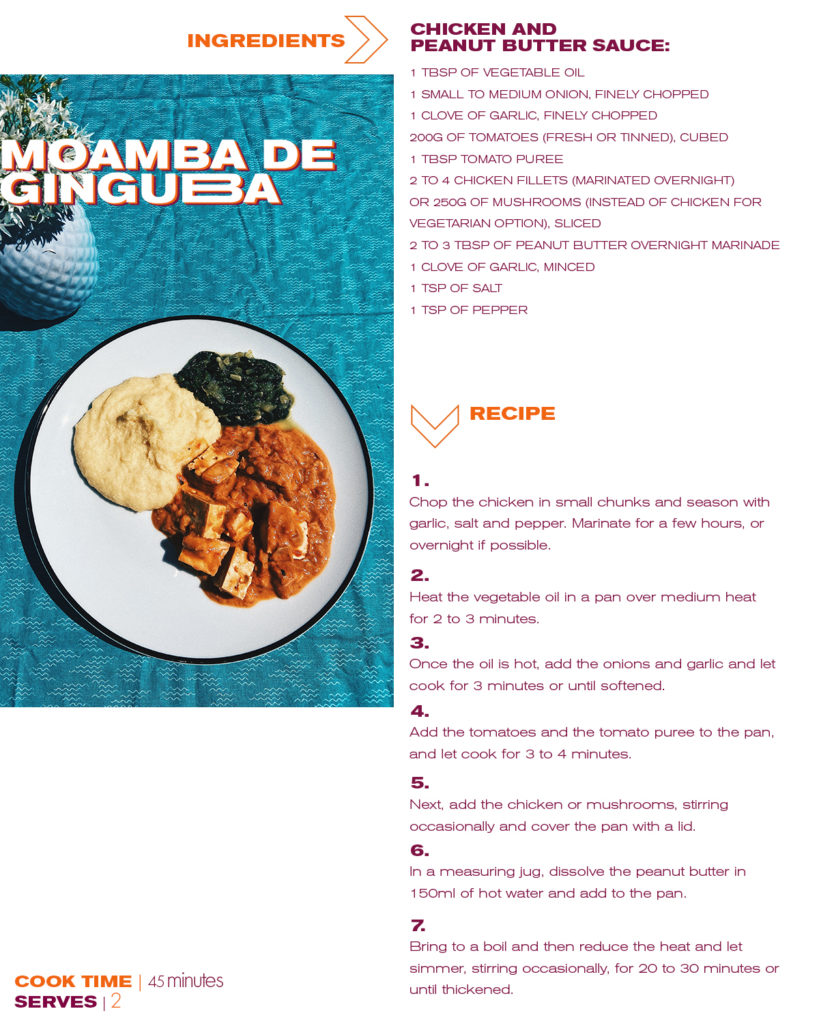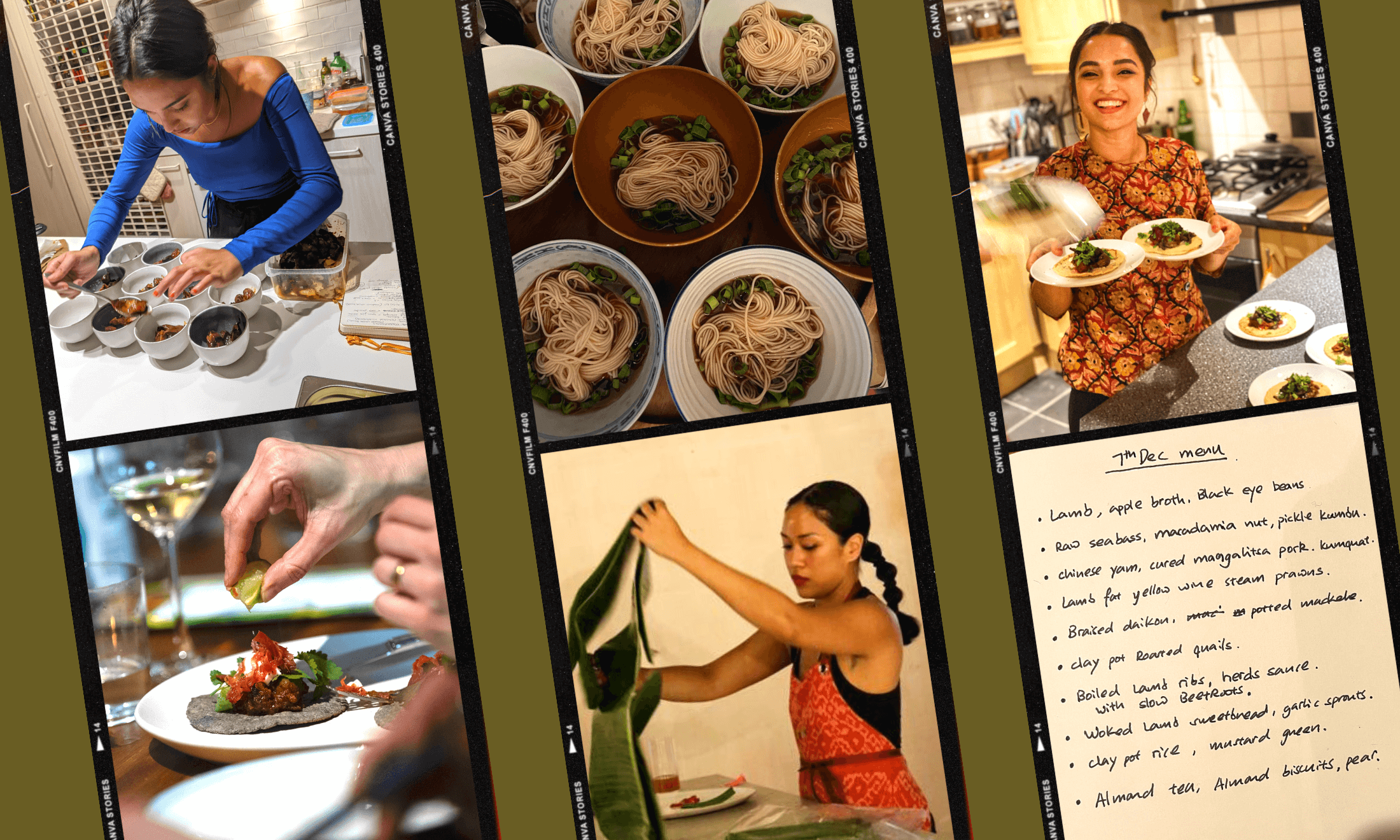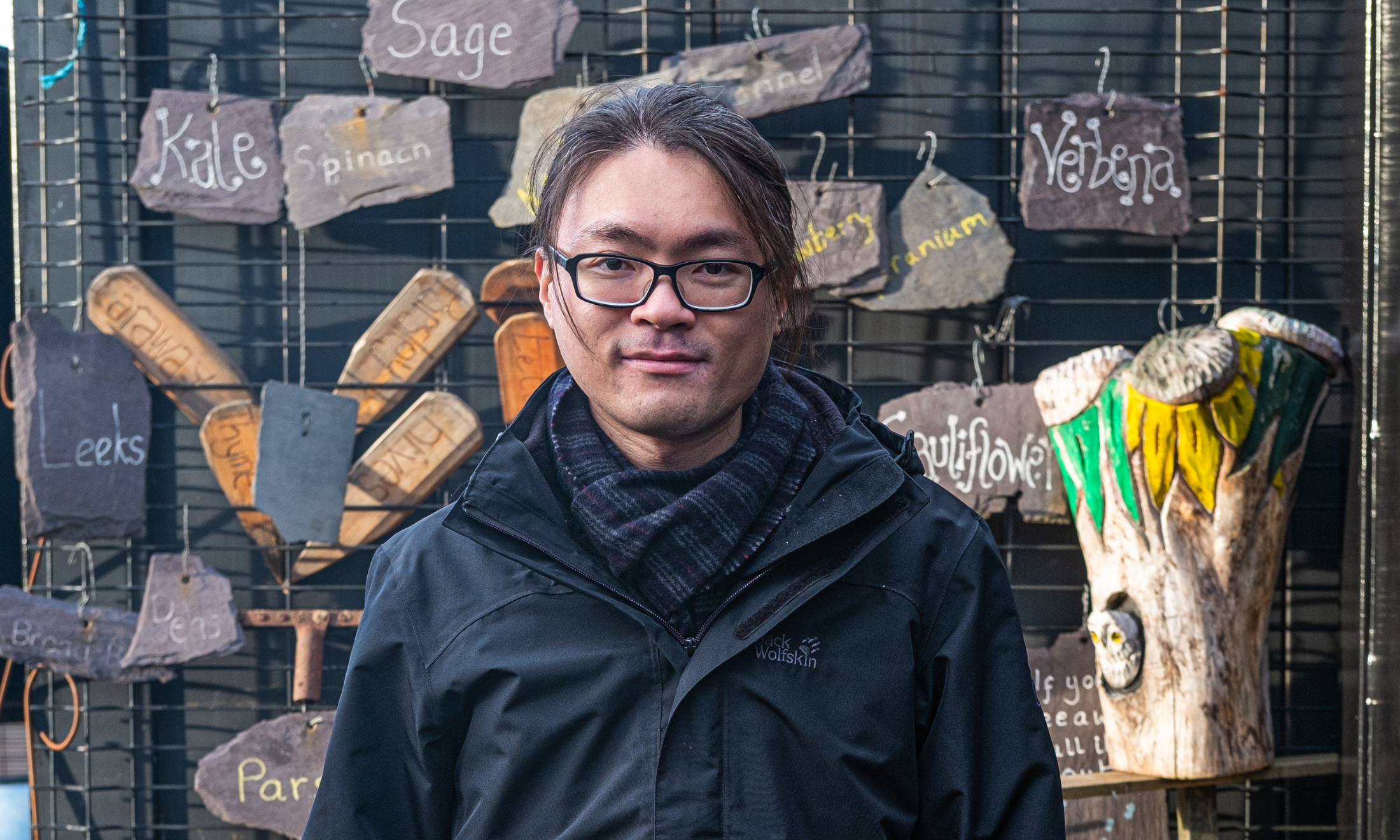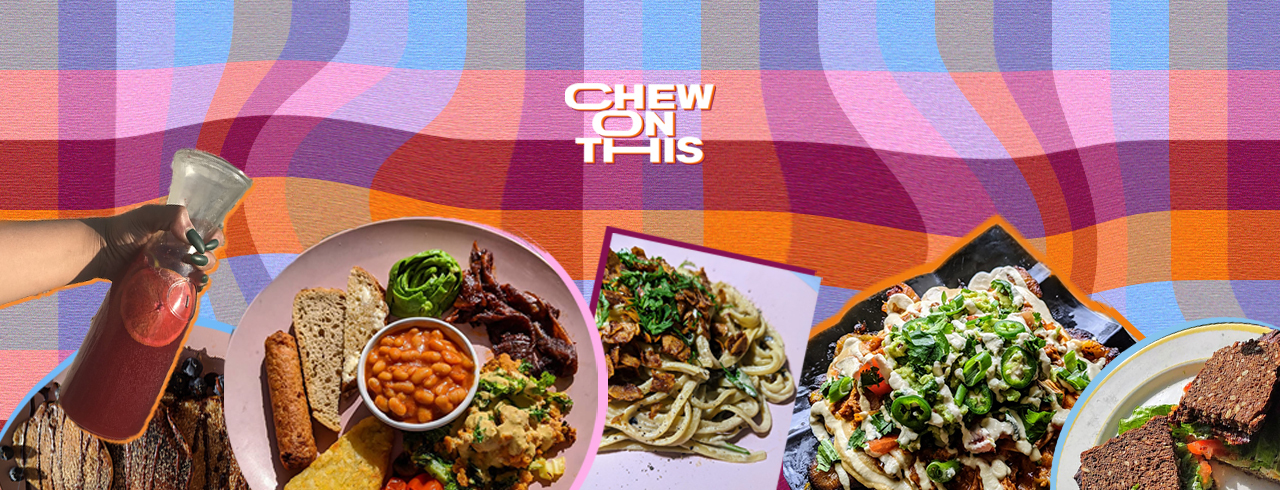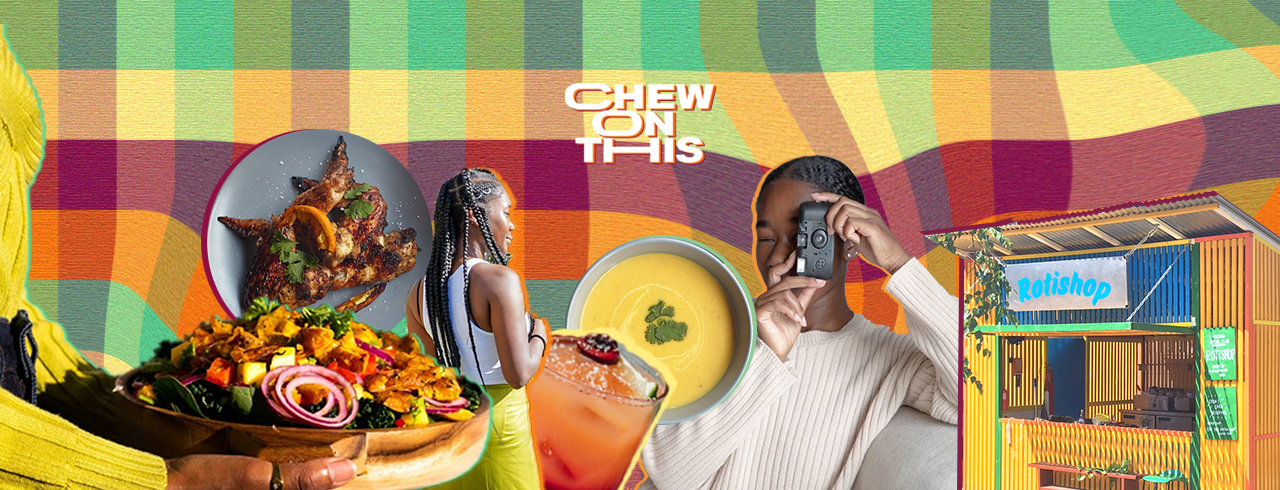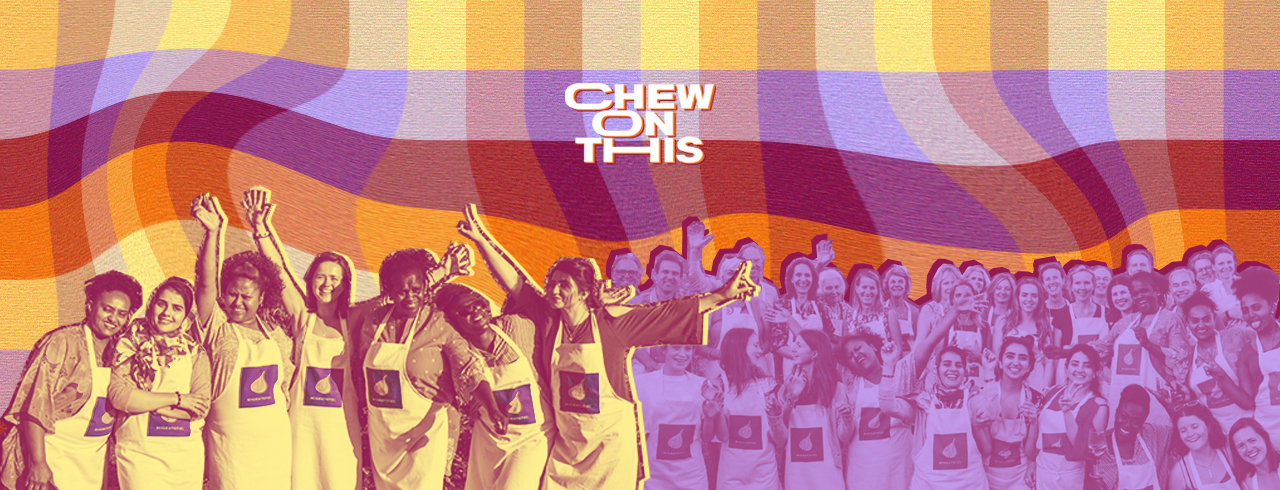
Photography courtesy of Migrateful, Design by Karis Pierre
Wherever you’re celebrating your Black History Month, food always takes us home
Chanté Joseph
22 Oct 2020
Celebrating Black History Month with support from Sainsbury’s
You can make wherever you are home through the nostalgia-inducing smells of your favourite dishes. Though you are separated by sea and land, recipes that carry stories and history follow you wherever you go. An organisation that helps to facilitate and share those stories is Migrateful, a space for migrant-led cookery classes. Their program empowers those who, due to linguist and legal barriers, have struggled with employment. So far they have supported 57 migrant chefs teach 830 classes to 8,300 people. One of the people they work with is Angolan-born migrant Edite Martins. She fled Angola in Southern Africa due to the 27-year long civil war that started in 1975, she had Portuguese citizenship on her mother’s side so stayed in Lisbon for three years before deciding to embark on a new adventure to the UK. Though she is aware of the struggles in Angola, she still misses home and appreciates the beauty of it.
We speak over zoom one afternoon as she tells me her story of how cooking opened doors for her. She is warm and exudes motherly energy as she cuddles her youngest daughter while we talk. Edite got involved with Migrateful just before lockdown, after moving from Brighton to London she was away from family and friends and felt lonely. “One of my neighbours was studying English and her teacher referred her to Migrateful but she was afraid to go on her own so we went together,” she explains. Prior to that day Edite had never heard of Migrateful but decided to sign up when she went with her friend. “I was interviewed and one week later I got a message to say I had been accepted. I trained for six months from September to March and I only did one class before lockdown started and then everything moved online.”
Despite the bump in the road the pandemic caused, Edite has gained a lot from the program. “Until I met Migrateful I never realised how much I loved cooking because it was always seen as a domestic duty,” she tells me. “I never thought that cooking would be a skill to help me connect with so many people and have the opportunities I have now to talk about my country and culture”
“Angola gets a bad rap, people think it is all about corruption but I’m so happy that through Migrateful I have an opportunity to talk about the positive things like food and even music” she tells me. “We Angolans are a vibrant people. We enjoy a good laugh, gatherings and the spirit of family. I love the diversity of people, culture, music and the weather.” Martins learnt how to cook from her grandmother in Angola. “My parents were full-time workers and when I was growing up we didn’t have nurseries so my grandma would look after us. She never put pressure on me to learn how to cook, I just wanted to. I’m a very visual learner so I stayed very close to her and watched how she did things,” she reminisces. “In the kitchen, she would never rush and in general she was a very calm person and now when I cook I don’t like the pressure, I don’t watch the clock, I like to feel relaxed.”
Before cooking took over her life, Horticulture was Martins first love and something she had always dreamed of working in. “When I was studying Horticulture it was my goal to move to Scotland and pursue a career at the Royal Botanic Garden Edinburgh but I decided to start a family and put my academic life on hold to become a mum” she shares. Though she does not study it or practice it as a career she has still made it apart of her life. “I have two beds in our common garden and throughout the summer I grew sweetcorn, peas and pumpkin. We ate pumpkin leaves in Angola and I was missing it a lot so that is why I decided to grow them.” She even encourages her daughter to get involved with things and together they began an edible garden during lockdown.
Edite’s recipe for us this Black History Month is the delicious Moamba De Ginguba, a type of chicken and peanut butter stew which is a staple in Angola because of how quick and straightforward it is to make. She was taught this recipe by her grandmother and has graciously shared the aromatic stew with us. “It’s the simplest dish you can adapt to western culture, I had to simplify it even more because of the lockdown but all of the ingredients you can get from a supermarket.” she tells me. The dish is often had alongside cassava fufu but can easily be had with potatoes or yam.
